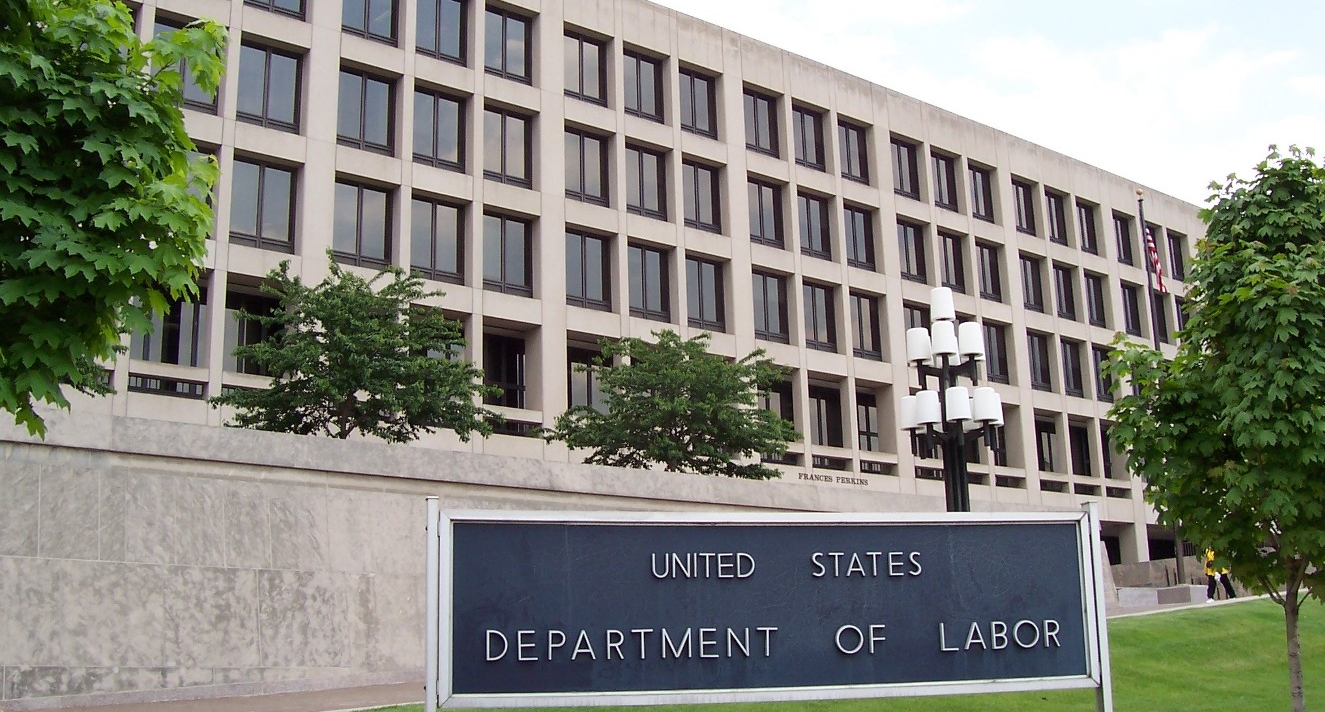
Four weeks ago, President Donald Trump nominated Eugene Scalia, son of the late Supreme Court Justice Antonin Scalia, to become the next Secretary of Labor.
The news finally solidified weeks of speculation about the possible selection, with media quickly turning to the younger Scalia’s bona fides. As Newsweek summarized in August, he now works as a
labor lawyer and partner at Gibson, Dunn & Crutcher LLP. He has previously served as legal officer for the Department of Labor under the George W. Bush administration, as well as Attorney General William Barr’s special assistant in 2001 when he was a top law enforcement officer during the George H.W. Bush administration.
Initially, Democrats and labor groups explained opposition to Mr. Scalia’s nomination as based his history of working on behalf of corporations at Gibson, Dunn & Crutcher. Late last week, however, the Washington Post reported a new basis for opposition: Scalia’s youthful views on homosexuality, including writing which expressed support for discriminatory treatment of same-sex couples and their rights as parents.
Mr. Scalia is expected to be confirmed by the Senate easily, with a 53-47 Republican advantage in the upper chamber and Scalia’s widespread popularity among conservatives.
The Claimed (Vague) Evolution of Eugene Scalia
In part, media attention has turned away from initial reporting on Scalia’s youthful views, if not pivoted entirely toward uncritical exoneration.
The American Lawyer‘s Vivia Chen exemplified the latter, writing a few days ago (at Law.com) that the younger Scalia had demonstrated he now is “fine with the normalization of LGBTQ culture.” The evidence is thin at best.
(This is a claim immediately undercut by Chen’s use of “transgendered” people instead of the grammatically correct “trans” or “transgender,” which casts doubt on her standing to speak on these issues, especially juxtaposed with her sharp analyses elsewhere.)
Chen then advances an empirically curious claim: that Mr. Scalia “gave the answer that you’d expect from any Big Law partner” when asked by Senate Democrats about anti-LGBTQ workplace discrimination — “that it’s wrong.”
Whether this reflects actual experiences of LGBTQ attorneys and law students is an open question, as many law firms and a significant majority of law schools lack any data on their LGBTQ+ community members, despite increasingly common policies promoting diversity and inclusion. In other words, whether Big Law partners would say “it’s wrong” to discriminate is less important than whether they perpetrate LGBTQ-hostile cultures, something we can’t know definitively.
Worse, Eugene Scalia’s “evolution” is predicated on an assumption (as Mr. Scalia “declined to comment” for Chen’s Law.com piece), and an especially flimsy one:
As [National Law Journal’s Marcia] Coyle reports, he “did not answer directly on whether Title VII of the Civil Rights Act of 1964 prohibits employers from discriminating against workers because of sexual orientation or transgender status.” Instead, he told the committee: “We’ll see what the court decides,” alluding, probably, to the three upcoming U.S. Supreme Court cases involving LGBTQ workers.
That said, Scalia seems to have undergone a genuine transition. Disavowing that college article, he said: “I wouldn’t write those words today. I now have friends and colleagues to whom they would cause pain. I would not want to do that.”
Somehow, this dithering on the fundamental rights of LGBTQ+ Americans to be free from discrimination leads Chen to assert we should “be generous and assume [Eugene Scalia] was capable of change.” “I’d like to think so,” she concludes. Such optimism is baffling.
LGBTQ+ Legal Rights on the Line Throughout the Administration
As Instinct reported on multiple recent occasions, next month’s Supreme Court arguments in three cases could be the furthest-reaching ever on LGBTQ+ rights in America. While Mr. Scalia’s expected elevation to Labor Secretary will place him in a powerful position to guide federal policy, including overseeing the DOL’s Office of Civil Rights, Title VII would remain the domain of the Equal Employment Opportunity Commission (EEOC).
These concerns are lesser when compared to, say, Justices Gorsuch and Kavanaugh, whose views on LGBTQ+ rights are chronicled elsewhere. Nonetheless, in the morass of Trump administration-related news coverage, anti-LGBTQ leadership from the Education Department to the highest courts is widespread and too-often forgotten.
Whether the Department of Labor is next remains to be seen. He’s not Justice Antonin Scalia, it seems, but the raft of anti-LGBTQ executive branch officials is far from heartening.
(Sources: Law.com, Washington Post)
